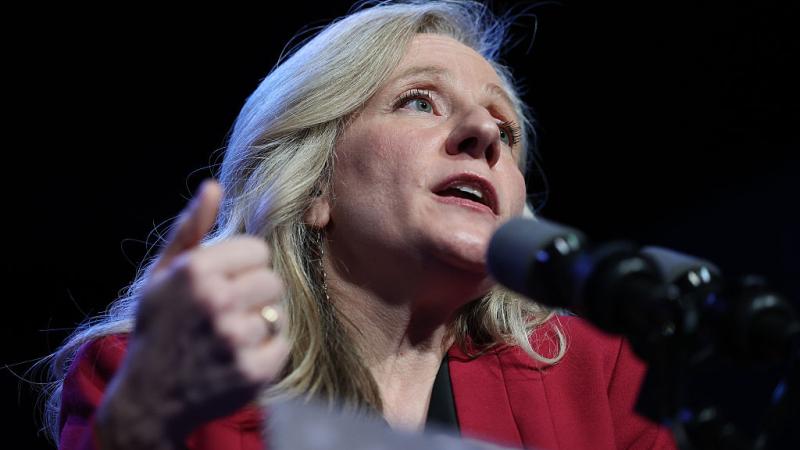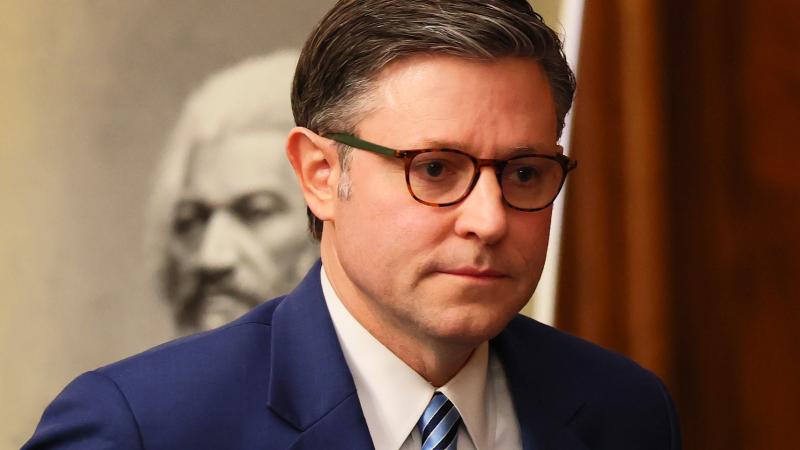Democrats look to budget ploy for infrastructure spending as Biden agenda faces roadblocks
Democratic Senators Joe Manchin and Sen. Kyrsten Sinema oppose eliminating the filibuster, but party leaders have a limited window to use budget reconciliation once more for a massive infrastructure bill.
President Joe Biden's ambitious legislative agenda faces an uphill battle in the U.S. Senate, but Democratic leaders have a limited window to use a familiar budget maneuver around the filibuster to pass a large infrastructure bill.
West Virginia Democratic Sen. Joe Manchin announced Sunday that he opposes H.R. 1, the sweeping federal election reform bill approved by the Democrat-led House. The bill is backed by House Speaker Nancy Pelosi and Senate Majority Leader Chuck Schumer.
The bill, titled the For the People Act, would entail a dramatic shift in the power to set election rules from state legislatures to Congress. The authority to prescribe "the times, places and manner of holding elections for Senators and Representatives" is granted to state legislatures by the Constitution's Elections Clause, subject only to a congressional power to alter such rules recognized in the following, subordinate, clause.
H.R. 1 creates a nonpartisan redistricting commission and requires automatic voter registration with an opt-out provision for individuals. The legislation would make Election Day a holiday for federal employees, and it would prohibit states from placing any restrictions on a voter's ability to cast mail-in ballots. Prior to the COVID-19 pandemic, voters in many states needed to provide an excuse to obtain an absentee ballot.
Under the bill, super PACs would be required to publicly disclose their donors, and small donations of up to $200 to participating congressional candidates would be matched with public financing at a 6-1 ratio. The public financing provisions of the bill are estimated to cost about $3.2 billion over 10 years, according to the Congressional Budget Office.
For the bill to pass the Senate, every Democrat in the chamber would have to vote to eliminate the legislative filibuster that requires a 60-vote threshold for bills to advance. Without the filibuster in place, the bill would need 50 Democratic votes plus Vice President Kamala Harris as the tie-breaking vote to pass.
"The truth, I would argue, is that voting and election reform that is done in a partisan manner will all but ensure partisan divisions continue to deepen," Manchin wrote in an opinion column. "With that in mind, some Democrats have again proposed eliminating the Senate filibuster rule in order to pass the For the People Act with only Democratic support. They've attempted to demonize the filibuster and conveniently ignore how it has been critical to protecting the rights of Democrats in the past."
Manchin and Arizona Democratic Sen. Kyrsten Sinema oppose eliminating the legislative filibuster.
Unlike Sinema, Arizona Democratic Sen. Mark Kelly hasn't taken a public stance on the filibuster. The Arizona Democratic Party has formally called on both Sinema and Kelly to support eliminating the time-honored practice.
In April, the National Republican Senatorial Committee criticized Kelly for not taking a position on the issue.
"D.C. Darling Mark Kelly has been 'studying' his own stance on the filibuster for nearly a year, yet he still cannot give a straight answer," said NRSC spokeswoman Katharine Cooksey. "He's just delaying the inevitable. Mark Kelly can't stand up to Washington Democrats who bankrolled his campaign — we all know he will support abolishing the filibuster. Once again, Mark Kelly proves how easy it is for him to ignore Arizona voters and fold to the Far Left special interest groups and Democrat leadership in Washington."
Despite the likelihood of the filibuster surviving, a ruling from the Senate parliamentarian has opened the door for Democrats in Congress to use automatic budget reconciliation to pass a massive infrastructure bill. The Democrats used that budget tool as a way to avoid the filibuster and pass the $1.9 trillion American Rescue Plan Act, the second-largest stimulus bill in U.S. history, without any Republican votes. Manchin and Sinema wound up voting in favor of the legislation. Biden signed it into law in March.
The ruling means that Democratic congressional leaders have an opportunity to roll Biden agenda items that impact the federal budget, such as infrastructure spending, into one comprehensive legislative catchall. Earlier this year, a Democrat committee chairman anticipated the resulting package a "grab bag" for key Democratic legislative priorities.
However, this may be their last shot this year to use reconciliation. Earlier this month, the Senate parliamentarian ruled that budget reconciliation was intended to be reserved for "extraordinary circumstances." The broadly worded opinion was a reality check for Democrats hoping to use reconciliation as a routine tool for bypassing the filibuster and seizing largely untrammeled legislative power in the Senate, despite the body's 50-50 split.
Biden has proposed about $4 trillion in new spending as part of his infrastructure agenda, which includes the $2 trillion American Jobs Plan and $1.8 trillion American Family Plan. The proposals have not been drafted into formal legislation yet.
Manchin and Sinema have been involved in bipartisan negotiations on infrastructure, but an agreement has not been reached with the White House. According to Politico, "If both Manchin and Sinema sign onto the bipartisan deal but Republicans ultimately back out, White House advisers think they will then be in a much better position to convince the two senators to join a Democrat-only package that moves through the Senate via budget reconciliation."














